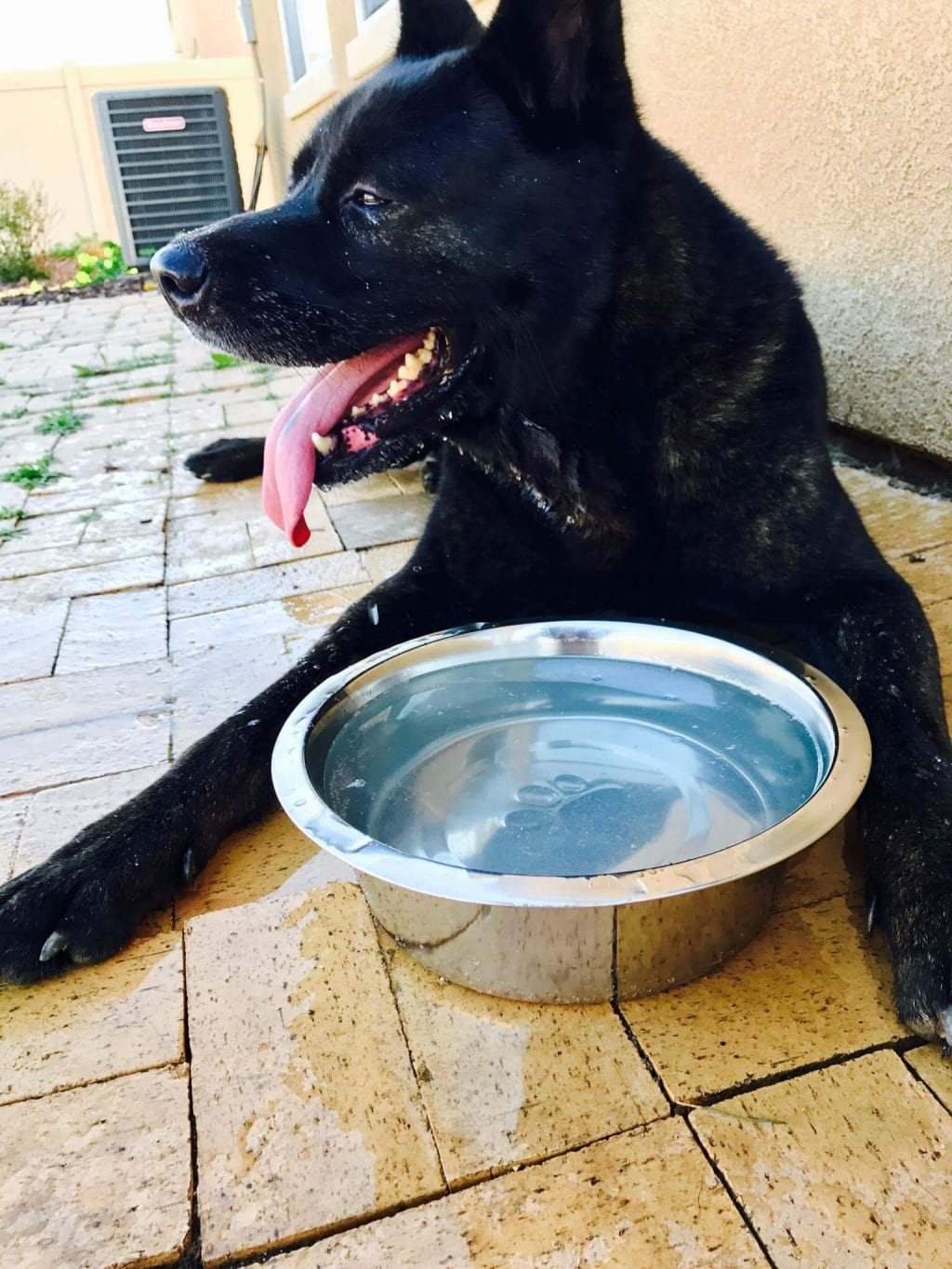
It was around my one-year anniversary that a best friend of mine had told me he was selling puppies. I asked what breed of dog they were and he said, "Akitas." Honestly, I'd never heard of Akitas until that very moment. I paid no mind until I randomly brought it up to my boyfriend. He was ecstatic. I had no idea why until he told me he has raised Akitas all his life and listed what they were capable of.
Now, I know almost all pet owners would say that their dog is the best breed, but hear me out. According to him, Akitas are large breed Japanese warrior dogs that were used in old times to seek out and finish wounded enemy warriors (fact), two Akitas can take down a bear, and they are loyal and smart. By smart, he means they are amazing escape artists, they don't like to poop where they sleep, and they know how to sneak around. This might look bad, but if trained correctly, they are genius.
According to Dogtime.com and similar sources, Akitas were used for guarding royalty and nobility in feudal Japan. They're fearless hunting dogs, yet respectful and affectionate when trained and socialized correctly. And then it says that they are hard to train, hard to groom, and not dog-friendly — not something I completely agree with, in my opinion.
Let me tell you about my experience. When Kimbo, my Akita, was 3-4 months old, he was not difficult to train at all. Of course, there were going to be accidents, but overall he listened pretty well. As a pet owner, we all should know that having a puppy requires for you to be in their first year of life for about 12 hours a day, every day. Ok, I may be exaggerating, but you do know that you have to be there for a majority of the day until they understand you, the family, the area, and what they can or cannot do. Below are a list some things we worked on:
1. Potty Training
- No pads were used because we didn't want him to be accustomed to peeing anywhere in the house; weening a puppy off of pads to using the backyard is a time-consuming transition that we found unnecessary to go through. Within a few days, Kimbo was able to let us know when he needed to use the restroom by sitting at front of the door to the backyard. If we didn't get his point in time, he made an accident by the door, but felt bad about doing it. Over time, he learned to come over to whine and interrupt whatever it is we're doing and point us to the door to indicate he needed to use the restroom — granted, he was only around 6 months-old.
- Small treats were given every now and then to praise him for his awesomeness.
2. Tricks
- To be honest, he already knew to sit, lay down, and give a handshake somehow, and we praised him every time so he became familiar with the commands.
- It took less than a day to teach him how to sit and stay.
- Fetching was not perfected until he was about a year old. Akitas are known not to fetch; it's been said that Akitas find no point in fetching as if that sort of act is below them, but he eventually got it... sort of.
3. Communication
- He was able to learn words such as "outside, walk, pee, food, water" and "treat." We've grown accustomed to him understanding us that we don't remember the time he officially learned.
- Kimbo also nudged items with his nose, not to topple it over, but to tell us that he wanted something. He was very gentle with everything — surprisingly — for such a large, strong breed.
- Whining or dog-talk at our comments meant "yes, that's it".
- Akitas rarely bark. They usually only bark when they feel danger or to set a warning. It's a great alarm system. They're known to stay quiet until they attack — which is probably why they were used as Japanese warrior dogs. Nobody wants unnecessary yappers anyways.
- Side note: Dog owners, please discipline your dogs not to bark at everything, your neighbors will thank you for it.
- Howling: it's interesting to watch them howl. When police sirens are on, instead of barking, they howl. We've taught Kimbo not to do so inside the house, but he's free to do so outside since it's only for a short while.
4. Outdoors
- As a puppy, he was great on the leash. Kimbo was never neutered so as he got older, he started to zigzag on walks a lot more out of curiosity. Maybe in search for a lady-friend?
- During hikes, he's usually off the leash and sometimes scouts ahead. He always looked and ran back as if to say, "All clear!"
- Camping trips with Akitas are fun. You also feel secure with them at night. Kimbo usually sleeps inside the tent with us because he's spoiled.
- Akitas love cold weather and are built for it. Kimbo is a water dog and loves to dip right in.
5. Socializing
- It is important to socialize your dog. Most pet owners want their dogs to be their personal bodyguards and think that it's OK not to socialize them at all. There's a downside to that. Not socializing your dog leads them to think that everything outside of what they know is a danger. When bringing someone new into the home it's more likely for them to cause harm to others. Nobody wants a lawsuit. Your dog will always try to protect you no matter what, socialized or unsocialized; they are your best friend and loyal companion.
- Take them to dog parks. Kimbo tends to either play on his own or with other dogs. It's a great way to build their character and mindfulness of the world around them. Since Akitas are big dogs, it's natural for other owners to be wary of their dogs around them. Train your puppy right and you'll have no worries of how they will act around others.
- Children are a different story. Most Akitas are not fond of children. Keeping a supervised eye on them while trying to socialize them with kids is a must. It's best to start at a young age to let them become familiar with smaller children. I've always wondered what Kimbo is thinking and why he always tilts his head when observing children. It's as if Kimbo is saying, "Why are you my height?"
6. Grooming
Akitas usually shed twice a year. It's best to deal with the fur all in one week. Taking them to get groomed at your local pet salon can help tremendously. We usually bring Kimbo to the groomers once in the summer and fall then we continue brushing him for about a week to make sure all he's no longer shedding. See? Easy!
7. Feeding
- We usually feed Kimbo 3-4 cups once in the morning and once at night. Having a scheduled time is great, although sometimes he decides to eat his food a little later than usual which is completely fine.
- Mixing a fresh egg with his food one a week or every other week helps keep his coat shiny.
These are just a few things I found essential to raising my Akita.
True story, my mother was dog-sitting Kimbo and while she was doing some laundry a fish had plopped out of the fish tank in her living room. Kimbo had seen it happen and ran over hysterically to my mom and kept jumping around and whining in a panic. She looked at Kimbo in confusion and decided to follow him. He led her to the living room and nudged the fish with his nose. She placed the fish back into the fish tank and to this day, about 4 years later, the fish is still alive thanks to Kimbo's heroic effort. Another true story, my mother was again dog-sitting Kimbo for a weekend and one night she was having a strange dream. She said that in her dream she was talking to my grandpa who passed away two years before and he had asked her to cross a field with him. She refused to crossover, but he kept insisting. She then woke up to Kimbo giving a loud bark and made sure she was awake until he laid back down to sleep. Strange, right? It's as if he knew what was going on and was looking out for her. (If you believe in that kind of stuff). Akitas are known in Japan to be spiritual animals and after that incident, I believed it.
Kimbo is now seven years old and has been the best friend I could ever ask for. If this doesn't convince you to become an Akita owner, I sure hope the universe provides you with your perfect companion. It is really all in how you raise them. Not very many people know about Akitas and I hope I've helped you by sharing my experience. Akitas are amazing communicators and are sensitive to your feelings. They are a bundle of joy, silly, and are great stress relievers. Yep, dogs, in general, are definitely a handful but it's all worth it.
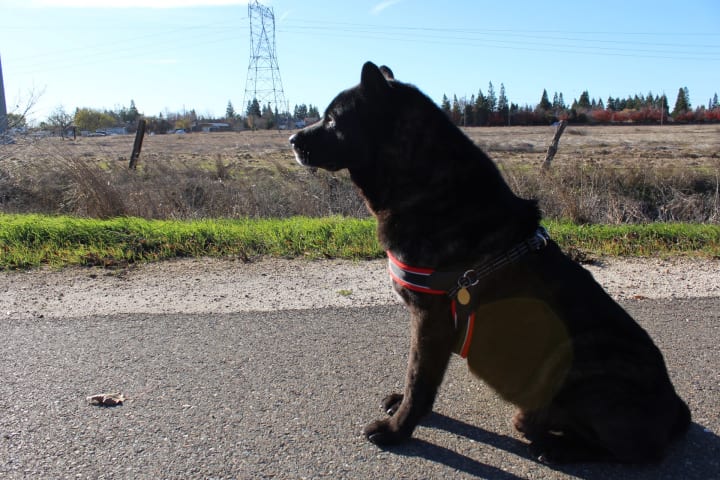
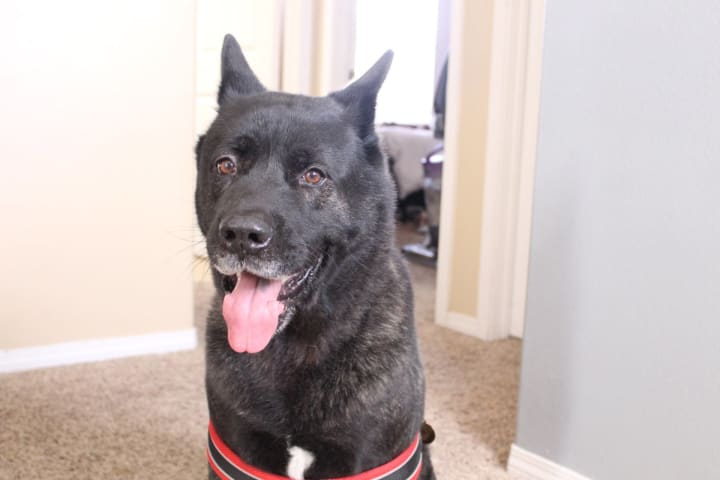
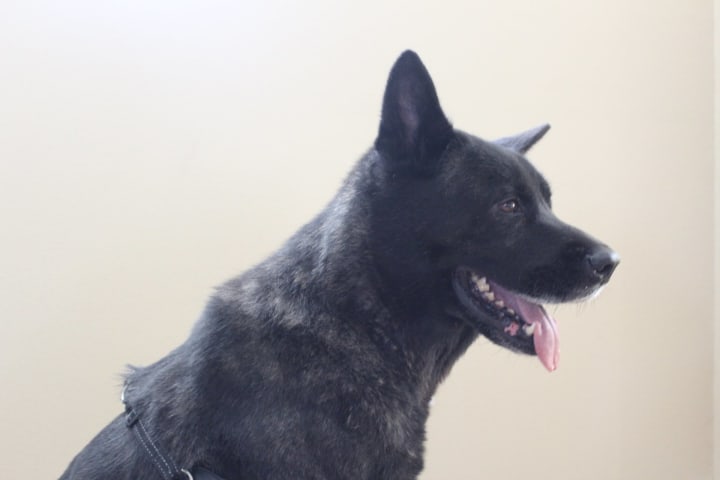
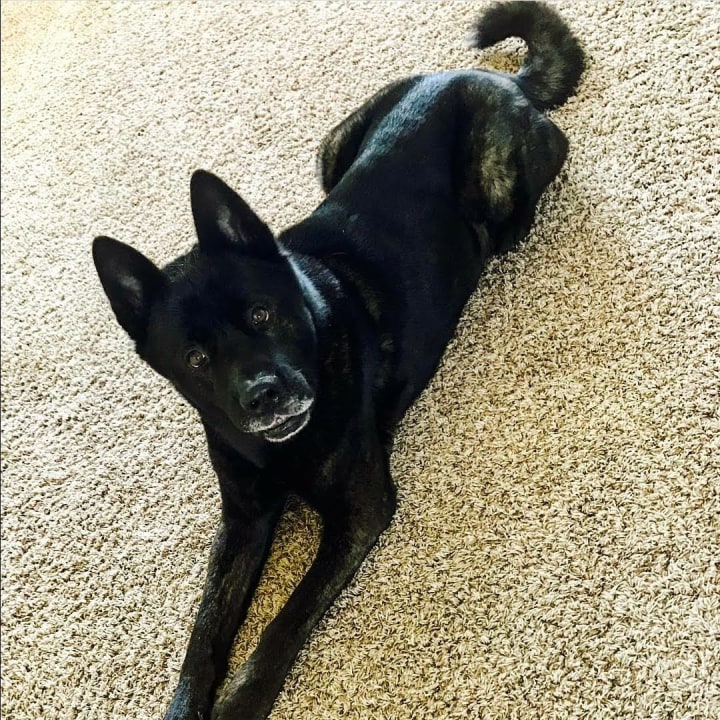
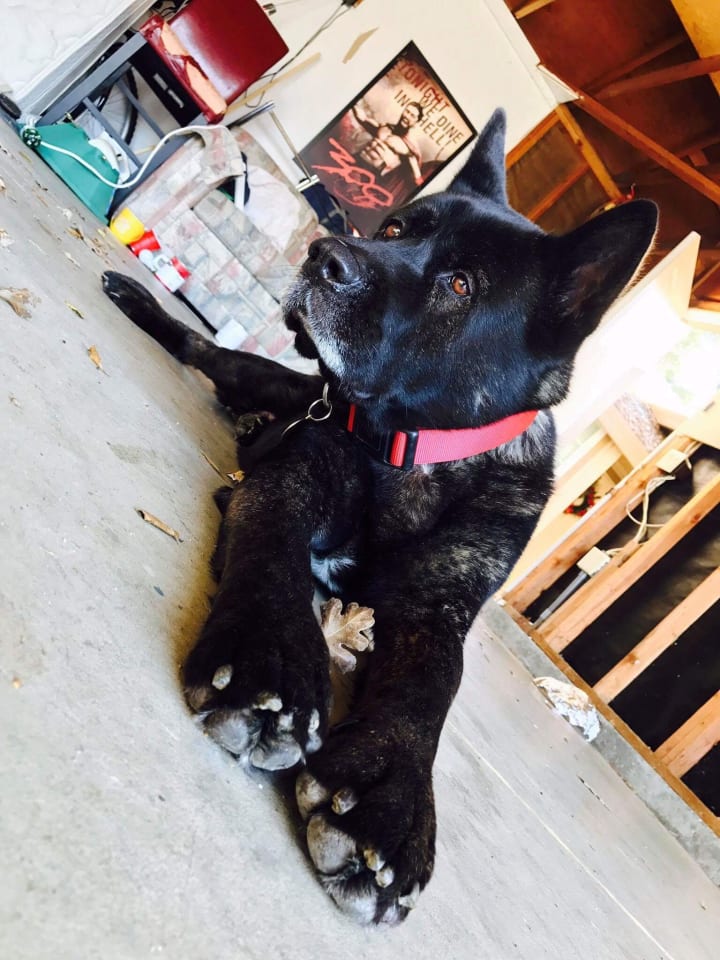
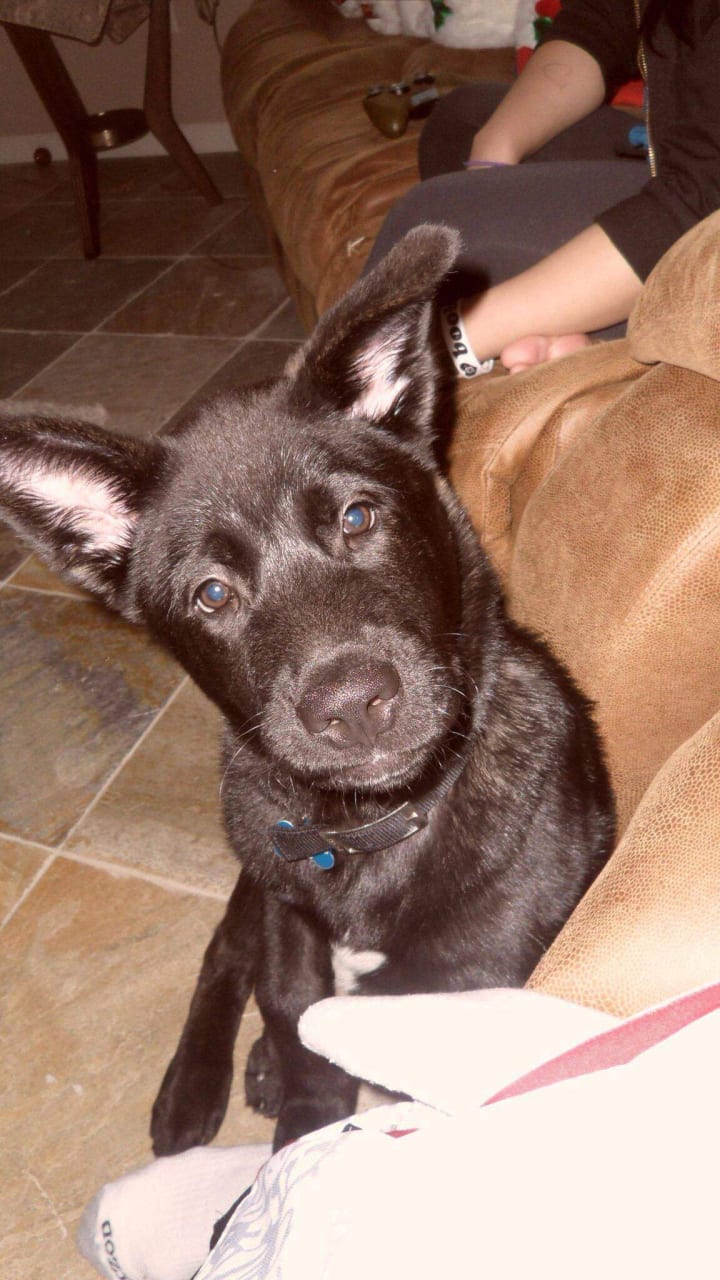
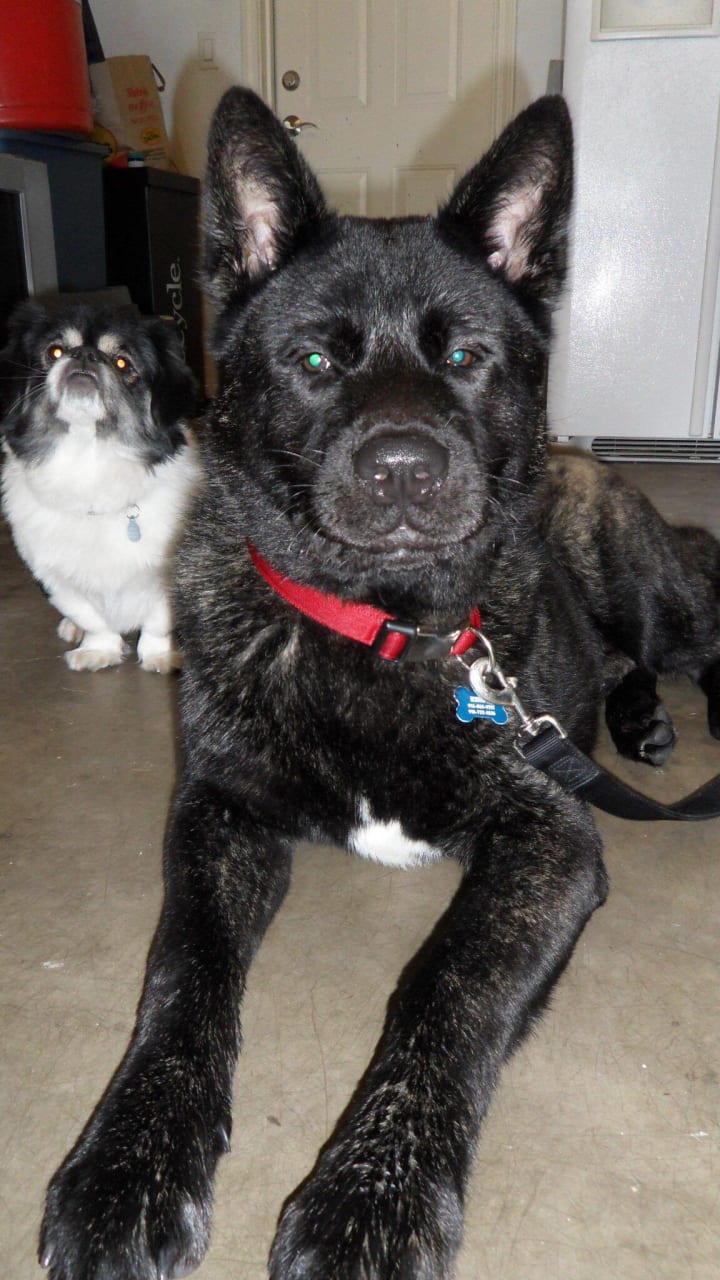
About the Creator
Aubrein Gimel
An inspired writer searching for more in life, but aren't we all?






Comments
There are no comments for this story
Be the first to respond and start the conversation.